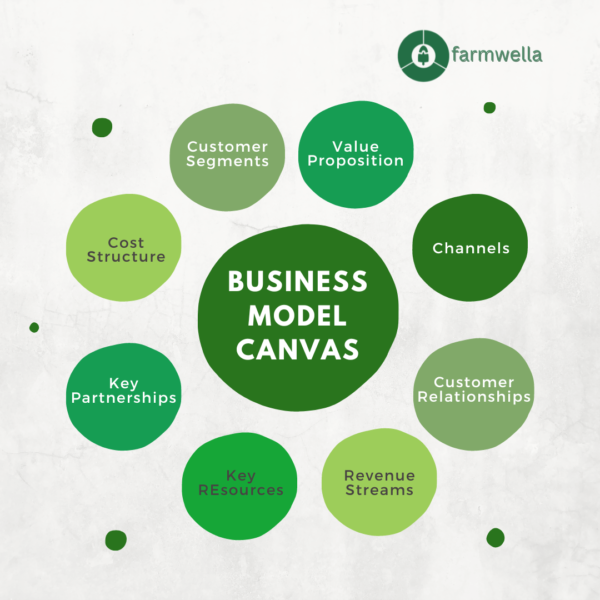Starting a farm business may seem exciting, but trust me, it’s not as easy as it appears. However, with the right preparation and knowledge, you can ensure success.
As an aspiring startup farmer, it’s essential to know some key factors that can help you build a thriving farm business. Farming isn’t a simple task, especially for those who are new to the field.
But don’t fret, I’ll share practical steps that Farmwella took before we were able to establish a profitable farm business.
I can’t guarantee that these tips will work for everyone, but I’m confident that they will benefit you, provided there are no unforeseen circumstances. So, grab your pen and paper, and let’s explore the journey of starting a successful farm business together.

1. Know your environment
Before you start your farm business, you need to know your environment. That means conducting a feasibility study to determine if your farm is even needed in your proposed location. Don’t just jump in blindly! Conducting a feasibility study is like doing your homework before starting a big project.
It will help you figure out if your farm business idea is viable, and will also identify potential challenges and opportunities. You’ll need to research your market and competition to see what they’re doing, and what they’re not doing. This can help you identify gaps in the market that you can fill.
It’s also important to determine the size and scope of your farm business, which will help you figure out how much capital you need to get started.
Farmwella did the same thing when we started out. We created a feasibility study to make sure that our solution – bridging the gap between the farmer and the consumer – was actually needed in Nigeria. We wanted to make sure that what we were offering was truly valuable to Nigerians.
2. Have a solid business plan in place
Having a business plan is crucial for the success of any farm business. It’s like having a map that guides you to your desired destination. You need to know where you’re going and how you plan to get there.
At Farmwella, we made sure to develop a business plan before starting our farm business. This helped us to stay focused on our goals and objectives. We were able to determine our financial needs and projections, as well as our target market and marketing strategy. It helped us to identify potential challenges and opportunities that we might encounter along the way.
Your business plan should include your goals, objectives, and strategies. It should also outline your financial needs and projections. This way, you can determine if you have enough capital to cover all the expenses that come with starting a farm business.
Your business plan should also include a detailed description of your farm business, your target market, and your marketing strategy. This will help you identify your niche and what sets you apart from your competitors. You’ll be able to determine what products or services you want to offer and how to market them effectively to your target audience.
Remember, a business plan is not set in stone. It should be flexible enough to accommodate changes and adjustments as you progress in your farm business journey. But having a solid plan in place is essential for the success of your farm business.
3. Have a business model canvas

It’s common for new farmers to overlook creating a business model canvas, but it’s just as important as having a business plan. In simple terms, it’s like a roadmap that gives you a clear and complete view of your agricultural enterprise.
So, how did we create Farmwella’s business model canvas? Here are the steps we followed:
- First, we identified our target customers. For Farmwella, our target customers are health-conscious consumers who are looking for fresh, locally-sourced produce.
- Next, we defined our value proposition. This is what makes Farmwella unique and valuable to our customers. Our value proposition is that we offer high-quality, organic produce that is grown using sustainable farming practices.
- Then, we identified our distribution channels. For Farmwella, we sell our produce directly to consumers through our website and social media.
- We also defined our revenue streams. This includes the price we charge for our produce and any additional services we offer, such as delivery.
- Next, we identified our cost structure, including the costs of farming equipment, labor, and marketing.
- We also determined our key resources, such as our farmland, farming equipment, and human resources.
- Finally, we identified any key partnerships we need to succeed, such as partnerships with local restaurants or other farmers for joint marketing efforts.
By following these steps, we were able to create a clear and concise business model canvas for Farmwella that helps us make informed decisions about the future of our agricultural enterprise.
4. Invest in proper equipment and technology
If you want to run a successful farm these days, you can’t ignore the importance of investing in the right equipment and technology. It’s a crucial part of modern farming practices that can significantly improve your productivity, efficiency, and profitability.
Starting with essential equipment like tractors, tillers, seeders, sprayers, and irrigation systems is a must. And if there are some equipment that you can’t own, like tractors, you can always look for ways to rent them when needed.
At Farmwella, we even designed our own equipment, such as the standing hoe, to make our farming experience more efficient and easier. It has been a game-changer for us.
But equipment is not everything. Investing in technology can help you manage your farm more effectively as well. Farm management software, for instance, can assist you in tracking crop production, managing inventory, and generating financial reports. Weather monitoring systems can help you stay ahead of changing weather conditions and adjust your farming practices accordingly. Drones can provide you with valuable insights into crop health and help with crop scouting.
By investing in the right equipment and technology, you can take your farming business to the next level and achieve greater success. You’ll have everything you need to operate more efficiently and productively, which is essential for a successful farming operation.
5. Choose the right location
When it comes to running a farm business, location is key. It’s not just about finding any patch of land and planting your crops – you need to be strategic about it. At Farmwella, we carefully considered a number of factors when choosing our farm’s location.
First and foremost, we looked for a location with suitable soil quality and climate for our chosen crops. We also made sure that there was ample water available. But that’s not all – we also took into account the proximity to markets. We wanted to be in a location that made it easy to transport our products to our customers.
Infrastructure was also a key consideration. We needed to have access to things like roads, electricity, and water to be able to operate our farm effectively. And of course, we needed a location that was convenient for us to manage and maintain.
In the end, we chose a location that was close to our target market and easily accessible to our customers. It has proven to be a great decision for our business. By taking the time to carefully consider all of these factors, we were able to choose a location that has helped us achieve success.
Conclusion
Starting an agricultural business may be challenging, but it can also be rewarding with the right tools, technology, and strategies. Tips like creating a business model canvas, investing in equipment and technology, and selecting the perfect location are key to success. Building strong relationships with customers, suppliers, and partners is also important for long-term sustainability. With hard work, dedication, and a love for farming, you can create a thriving agricultural business that not only benefits your community but also contributes to feeding the world.